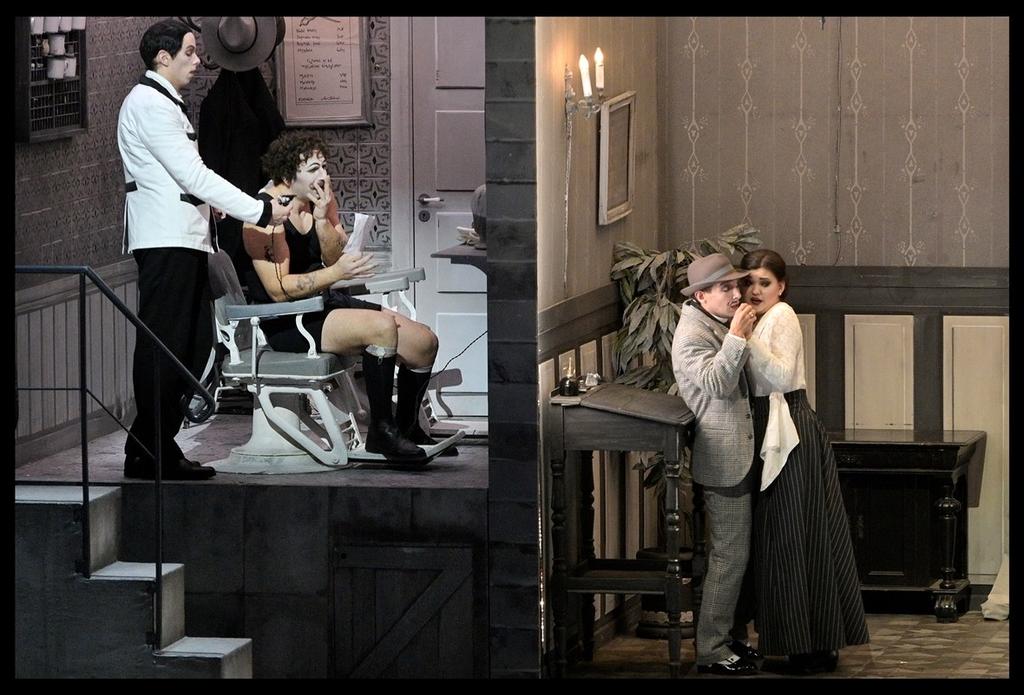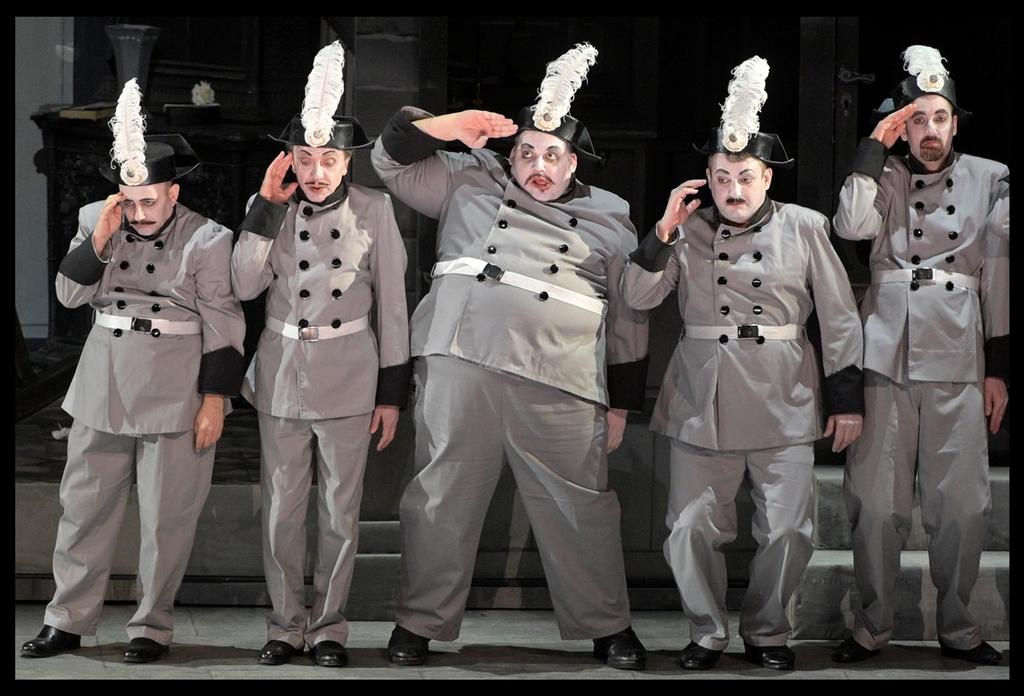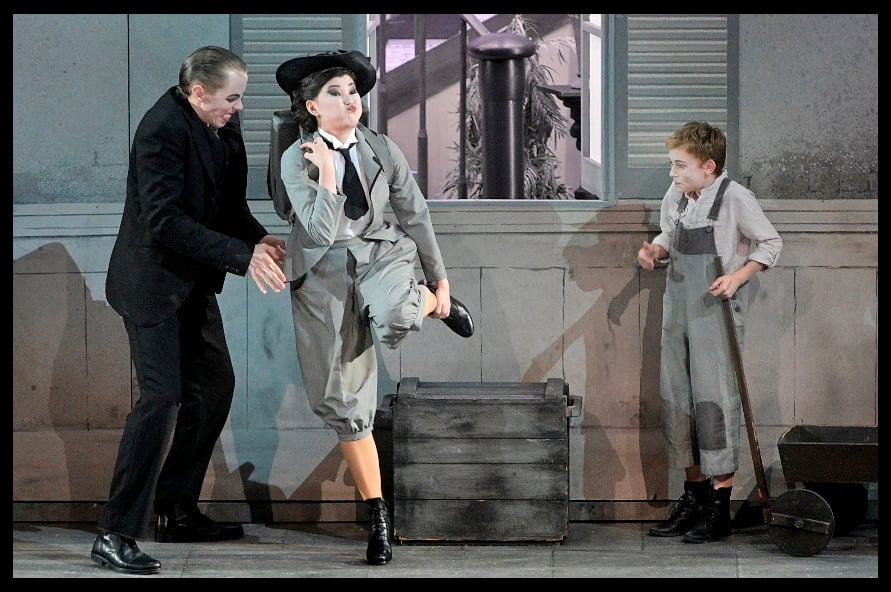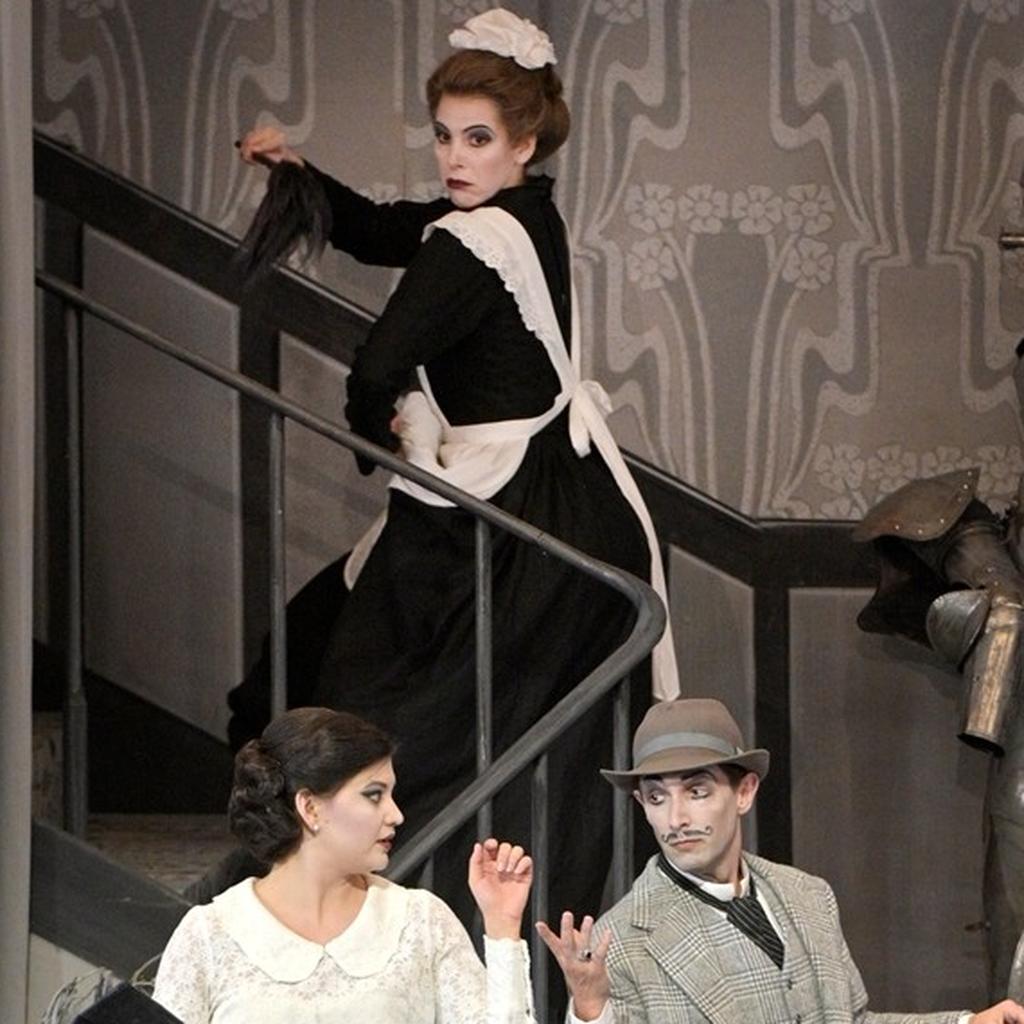Getting your Trinity Audio player ready...
It is hard to think of a more popular comic opera than The Barber of Seville, certainly the most frequently performed of all of Gioacchino Rossini’s 30 operas.
And from the very first notes of the familiar overture, and the famous opening aria Figaro, the current production by the Israel Opera captured the hearts of the packed audience.
Figaro was performed at the February 23 premiere by award-winning American baritone Jonathan Mitchie, marking his Israel Opera debut.
From the very first bars, it was evident that Mitchie’s magnificent voice was a novelty to Israeli audiences - and that he is no stranger to the role, which he has sung with the Leipzig Opera, where he has spent the bulk of his career.
He alternates in the role with Russian baritone Igor Onischenko, who is also appearing with the company for the first time.
Other artists in key roles making their Israel debuts were Russian mezzo-soprano Aigul Akhmetshina in the role of Rosina, Italian bass-baritone Luciano di Pasquale in the role of Dr. Bartolo, and American tenor Aaron Blake in the role of Count Almaviva.
Di Pasquale was the quintessential operatic buffoon in his depiction of the overbearing Dr. Bartolo, while Blake showed tremendous range when performing his impersonation of the fictitious Don Alonso.
Even guest conductor Alessandro de Marchi is making his Israeli debut. Based in Italy, the energetic de Marchi has conducted The Barber of Seville throughout Europe.
He was at the podium with the Israel Opera’s resident orchestra, the Israel Symphony Orchestra Rishon Lezion.
The scenery in this co-production with the Royal Danish Opera was the same throughout both acts, so it got a little monotonous.
But the costumes - especially of the police - added some color, and the action never let up.
The synchrony of the artists was flawless, and one could only marvel as they enunciated the lyrics even when singing rapid-fire, whether individually or up to five together.
The one annoying thing was the way the subtitles were displayed.
Usually, the Hebrew and English are screened together in three strategic locations, just above the stage and on the two sides, so everyone can read the monitor that is at the most convenient angle.
This time, the Hebrew was projected directly onto the props, and in different spots.
As if that were not distracting enough, the English subtitles were relegated to a monitor high up above the stage, almost at ceiling level.
It did not take long for my neck to feel the strain, and I had to give up altogether.
Meanwhile, the side monitors were inexplicably blank. The person who decided on this placement should be forced to sit through a whole performance with his eyes trained on the upper monitor.
The Barber of Seville runs through March 7. The next Israel Opera production is Tchaikovsky’s Yevgeni Onegin.





